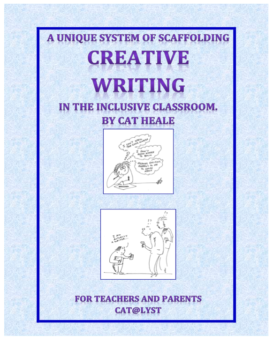
It need not be like this!
Provide a Haven
More than anything your home should be a haven from the stress and exhaustion of being a dyslexic at school. Listen to your child and believe them.
Provide Success
Life at school may not provide too much opportunity for success. Find activities which play to your child’s strengths: music/band/ art club/rowing/anything that they are good at, and encourage it.
Provide Fun
This may seem a strange suggestion, but if school is all very serious about what they can’t do and then they encounter long faces at home and hear you worrying on the phone to your friends and family, it all seems doom and gloom. Have fun; board games, den making, be outside, bicycling, sports…..don’t let them see your anxiety.
Talk Openly
This may seem contradictory to the advice above (about not letting them see your anxiety) but at the same time, if you are having discussions with the school, teacher, Educational Psychologist etc, your child needs to know the content and have an input in to the discussion. Children are all too aware when they are having difficulties, so it is best to discuss them with a positive attitude. It also needs to be emphasized that there are lots of things to be done to help and that that is what you are focusing on.
The Study Area
It is desirable to provide a stable and permanent table for working at. Being in the bedroom doesn’t often work; too many distractions! Ideally, a boring room near the kitchen but preferably not in the hubub of daily life. Organise it initially, colour-coding subjects and with a shoe box of dedicated resources (so they have no excuse going off to look for a pencil sharpener) and then pin up the photo of the ideal of how it should be organised, that can be checked daily, so it doesn’t get out of control.
If none of this is possible and the kitchen table it is, invest in a pair of noise cancelling headphones and have the child have their own ‘briefcase’ which acts as a safe place to keep everything.
Homework
Most tension revolves around homework. My main advice is to have a means of direct communication with the teacher and have agreed amounts of time that your child should spend on a given task. Help in advance, if you can, then set the timer going and say they are going to stop after an agreed time (which you then sign off in their book so the teacher can see how long they have spent.) Charts on the fridge, to track progress helps. At all costs, avoid never-ending homework frustrations and tensions. (See working with the teacher section)
Keyboarding
The best practical thing you can do for your child is to put them on a two week typing course in the holidays. Alternatively, download a free course (BBC Dance Mat) or buy a typing course (look at IT section) and find a cool teenager to come and sit with your child for an hour every day (it seems a much cooler activity if you, the parent are not involved!) They will then be faster/ better than their peers in secondary school and can access all the software productively. Why schools don’t teach this as a matter of course, baffles me.
Make use of the computer/ laptop for as much revision and work as possible. Good filing is essential, so that they know where to find everything. If you are unable to set up systems, get a savvy older student to do so with your teenager.
Siblings
Often it is very difficult for the siblings of dyslexics as they see the dyslexic getting more time and attention. This is usually true, so it needs to be explained why and then you need to find opportunities to have quality time and treats with that child on their own.
Reading at Bedtime
In an ideal world you would read for hours, to and with your child, at bedtime every night. In reality, and especially if you have other children and a host of other things you need to be doing during the ‘witching hours’, (between 6-8pm) this is difficult.
Children need to hear good written language, so you can admit defeat during the week and really make up for it on the weekends and holidays, use an older sibling, or in my case, I got the best books on tape from the library and they could listen for hours to something like The Hobbit, read by Martin Shaw. If you were super keen, you’d tape your voice the first time you read a book to your child and then they could listen to your voice even when you are not able to read!

ICT
- This is possibly the biggest growth area in terms of outstanding help for children with difficulties and/or English as an Additional Language.
- There are many pieces of software that support and scaffold the process of writing, not all of them need to be used all the time, but it is useful to be able to draw on them. Some of the key pieces of software to consider are:
- Text HELP. Read and Write Standard/Gold
Text-to-Speech Feedback, with a floating toolbar to create a supportive environment, providing all the speech and spelling tools needed.
- Dragon Speaking Naturally
You talk, it types!
- Inspiration V8
Visual mapping software that organises, plans and presents ideas.
- Wordbar
Always ready, on-screen vocabulary toolbox.
- Franklin Spell checker
Invaluable aid for proof-reading.
If you are interested a good company dealing in all this software, based in England, is: www.iansyst.com.
What to do in Half-terms and Holidays
- As above but it get’s more serious when your child has GCSEs and A Levels looming; there is a lot you can do to help.
- Left to their own devices, teenagers, especailly those with organisational difficulties will just stare at their books and have no idea how to get it in to their heads!
- Look at the ‘Embedding Study Skills’ and ‘Revision’ section in the teachers’ part of this website. If the teachers aren’t doing this it is possible you can do help or find someone qualified to do so.
- Make a plan for the holidays with the fun stuff and days out/parties etc put in too. Do this with your teenager. Decide together on how many hours a day they are going to work (3-4 hours for GCSE and 5-6 for A Level, as a very rough guide.) Print out a monthly chart and put a dot to represent every hour of work. Add up the hours. Next, they need to decide exactly how many hours they are going to give to each subject.
- Topic Overviews, which should take no more than 90 mins (otherwise there is too much information in it) is the key most useful activity to be done in the holidays (once they have learnt to keyboard!)
- Testing. Your child might ask you to test them. Try to avoid this as if they don’t know one answer they will panic and feel they know nothing. Instead ask them to ‘teach’ you about a topic from their topic overview. They should be allowed to look at it while they do so, it is the explaining that really makes it sink in.
